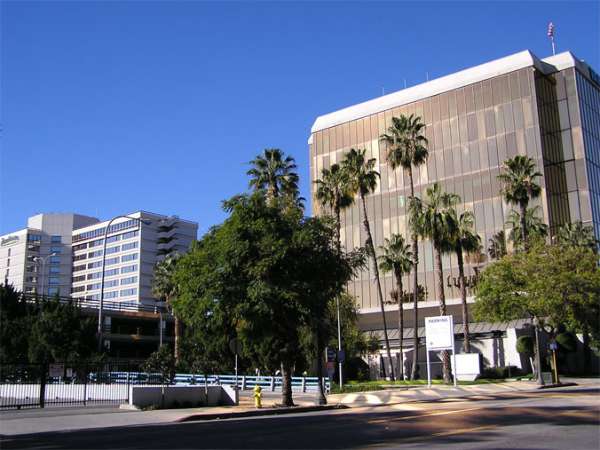
(Wikipedia photo)
SAN BERNARDINO, Calif.—In the San Bernardino offices of the Inland Regional Center, Christmas did not come after a couple massacred 14 people at a holiday party a month ago.
Tinsel still festoons cubicles. A small tree with presents sits undisturbed. A sign-up sheet to bring in food remains empty of names.
The staff was still gearing up for the holidays on Dec. 2, the day of the attack on the centre’s gleaming campus.
Few of its 600 employees have gone to the office since, other than a brief visit to gather personal belongings a week after the terror attack.
On Monday, they return.
While many have continued to work, visiting the homes of autistic children and mentally disabled adults, they haven’t been together in the place where everything froze once law enforcement officers whisked them away.
Amid the investigation and cleanup, the campus has been locked behind a chain link fence wrapped in green mesh. Within that perimeter, in one corner, is a second fence.
It seals the conference centre that San Bernardino County’s health department was renting for a holiday luncheon when the two attackers began their assault. A county restaurant inspector targeting his co-workers was joined by his wife in killing 14 and wounding dozens. The FBI says the attackers were motivated by radical Islamist beliefs.
The conference centre will not reopen Monday, and it’s not clear when it might.
For now, the act of reuniting elsewhere on campus will be a huge step forward for Inland Regional Center staff. They miss the friendly faces, the hallway conversations. They yearn to renew a sense of stability at an institution unmoored by violence.
“That’s what I’m hearing from them: ‘We want to be together again. We want to be back at work,’” said Lavinia Johnson, the centre’s executive director.
Sitting for an interview in a tidy courtyard shaded by two of the centre’s large, red stone buildings, Johnson and associate executive director Kevin Urtz reflected on the reopening.
The plan for Monday morning is, after a welcome and some food in the lounges, to do what social workers and counsellors do best—sit and talk.
“Just be together again,” Johnson said, “share where they’re at.”
After that, it’s back to work. Professional counsellors will be available for employees who want them.
“Our goal is to help people help themselves. And that’s pretty much the same strategy that we want to take with our staff,” Urtz said. “You know, help them through this.”
Both have worked more than 25 years at the Inland Regional Center, which with nearly 31,000 disabled clients in the working-class sprawl east of Los Angeles is the largest of 21 in California. It is a vital community resource in a place where about one-third of households live below the poverty line.
Johnson and Urtz expect staff to be resilient. They thanked law enforcement and expressed condolences for the families of the slain.
While people want to move ahead, Urtz doesn’t expect ever to put that day behind fully.
“I don’t think we’re ever going to just, you know,” he said, with his voice trailing off. “No, it’s too big.”
At the same time, with strengthened security, both said they are confident that the site is safe. After all, centre employees or clients were not the focus of the attackers.
Last week, Johnson was preparing for the reopening when she stopped by her office.
While there, she put away her Christmas decorations. And she thought how, this year, she didn’t get to enjoy them.